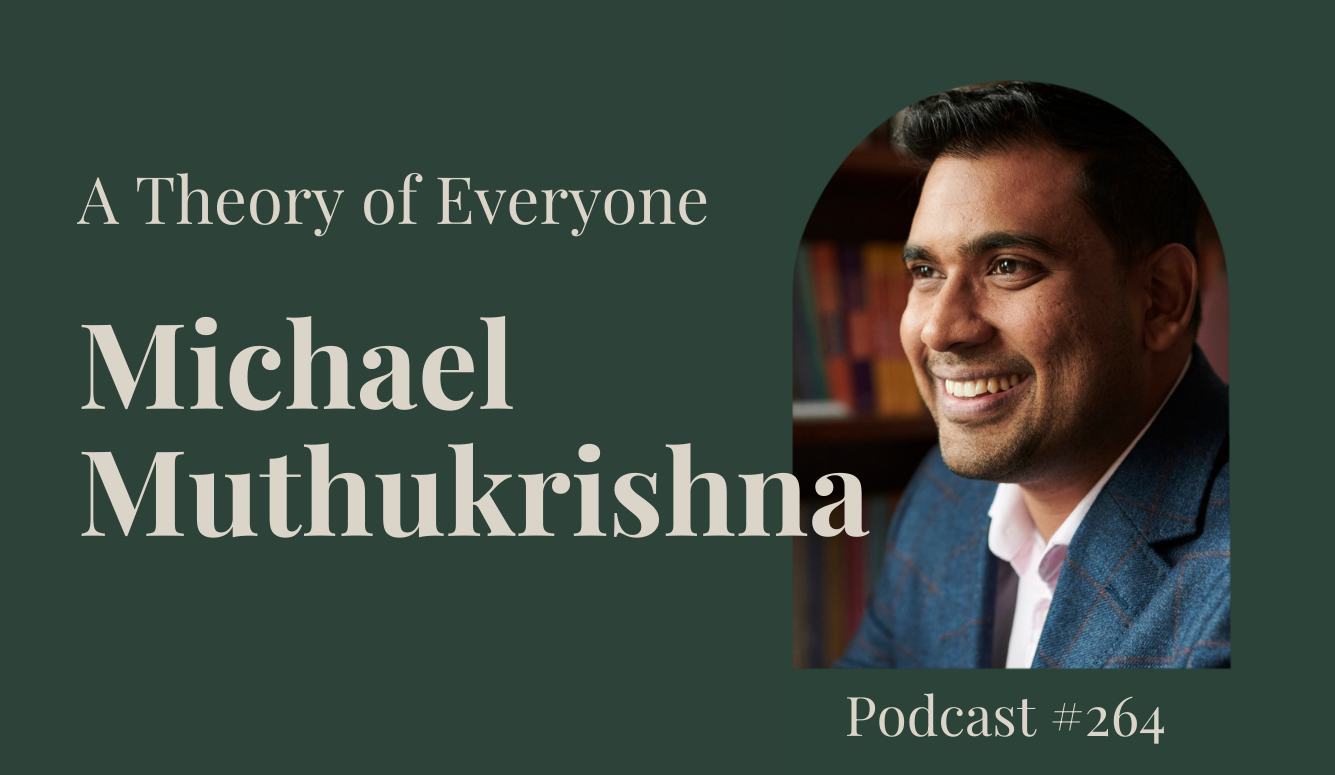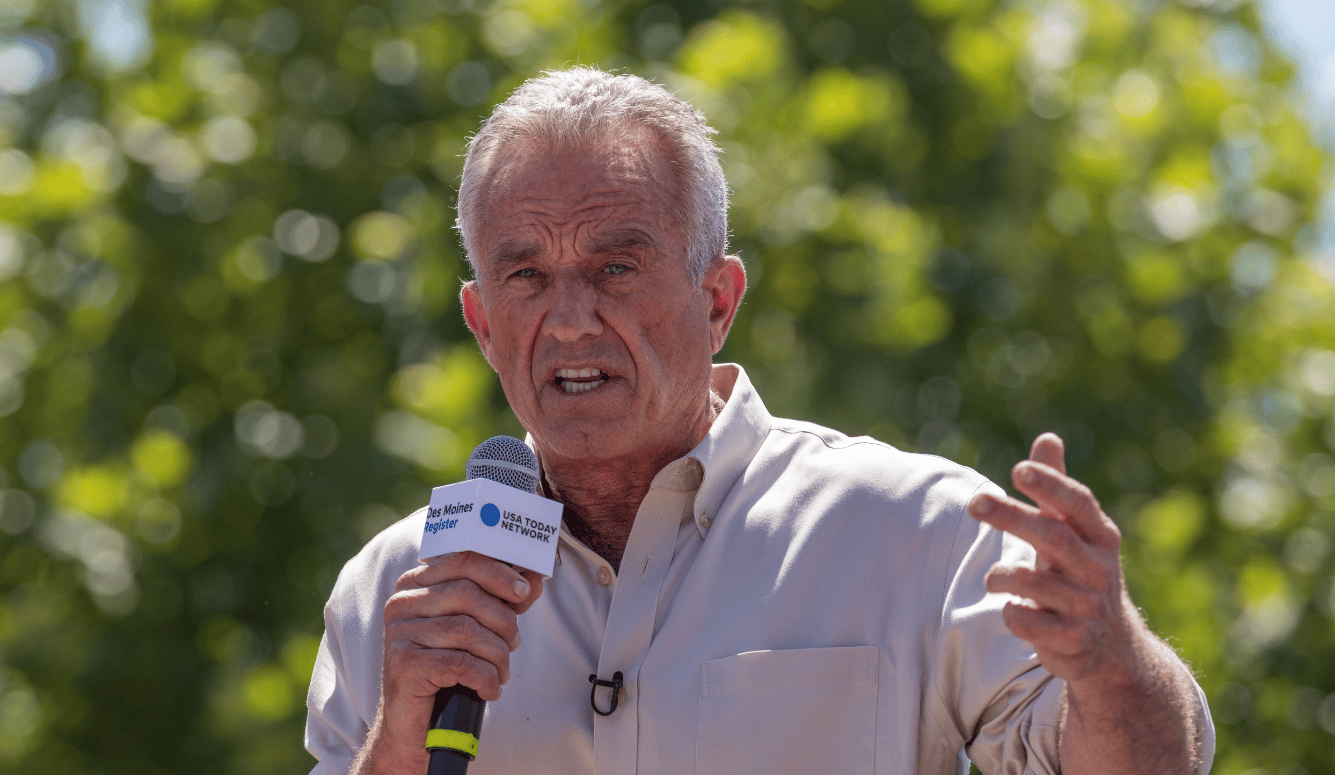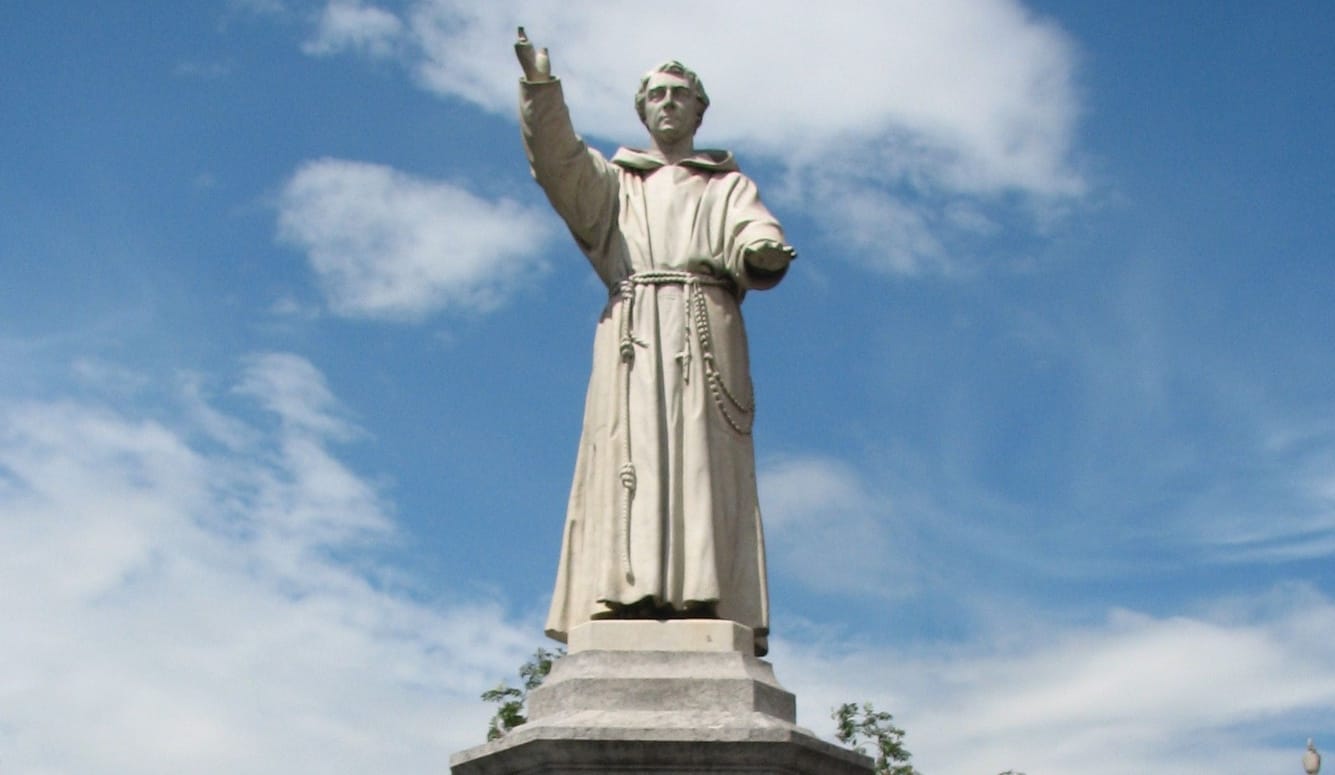Weighing the Threats to American Democracy
The ability to fire someone for their politics or deny them a job on account of factors unrelated to their qualifications is a form of power.
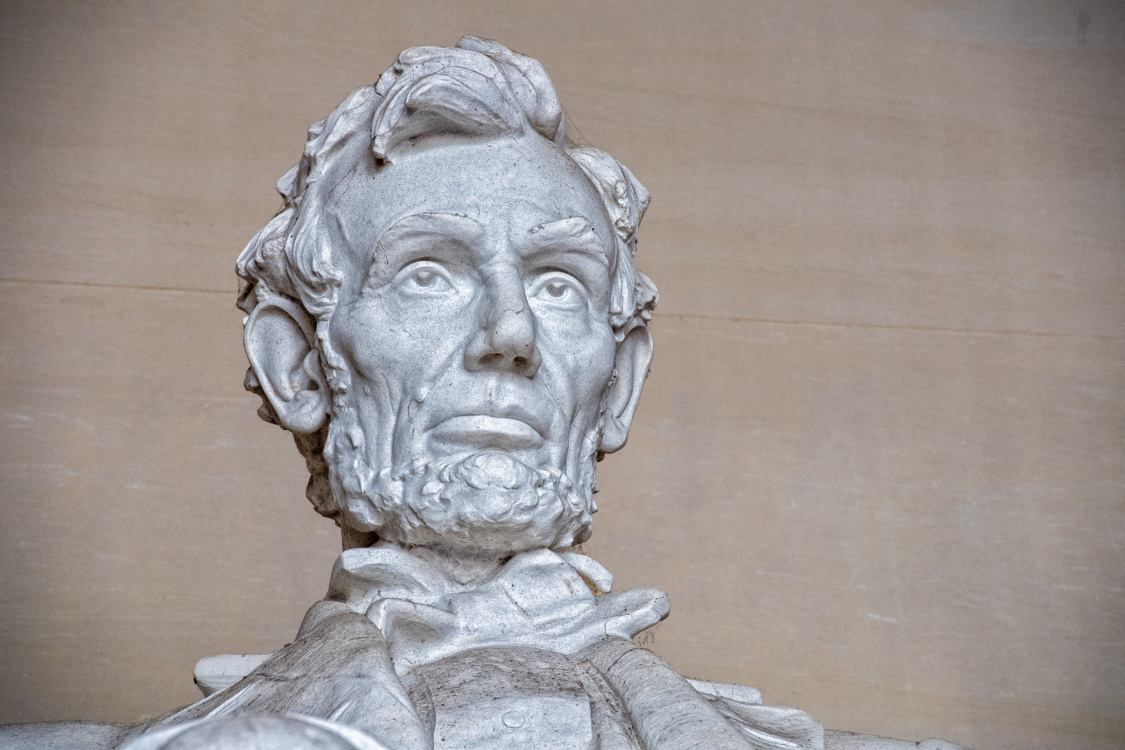
In recent years, there has been a tendency among many to present liberal democracy in the United States as being under threat from the actions of the right, yet little or no attention is given to the actions of the regressive left, which has also engaged in behavior hostile to democratic norms such as free speech, due process, and equal rights. One prominent intellectual who is an exception is Harvard psychologist Steven Pinker, who in his new book Enlightenment Now recognizes that “a faction of academic culture composed of hard-left faculty, student activists, and an autonomous diversity bureaucracy (pejoratively called social justice warriors) has become aggressively illiberal.”1 However, Pinker goes on to claim that the regressive left is a lesser threat because it does not hold power in government, apparently viewing it as largely contained to academia:
Of the two forms of politicization that are subverting reason today, the political is far more dangerous than the academic, for an obvious reason. It’s often quipped (no one knows who said it first) that academic debates are vicious because the stakes are so small. But in political debates, the stakes are unlimited, including the future of the planet. Politicians, unlike professors, pull the levers of power. In 21st-century America, the control of Congress by a Republican Party that became synonymous with the extreme right has been pernicious, because it is so convinced of the righteousness of its cause and the evil of its rivals that is has undermined the institutions of democracy to get what it wants…Their erosion, disproportionately by the right, has led many people, including a growing share of young Americans, to see democratic government as inherently dysfunctional and to become cynical about democracy itself.
In this, Pinker is mistaken. It is an oversimplification to assume that the present control of government by the Republicans means that the regressive left is a lesser threat to our freedom in the long term.
First of all, the dominance of the regressive left is not contained to academia. It is also present in the mainstream media, as we can see from the lack of viewpoint diversity present in most coverage of issues involving race, gender, sexuality, or any other identity classification where political correctness comes into play. It is present in Hollywood, as we can see from the ocean of black dresses worn to the Golden Globes, turning what was nominally an awards show into a display of conformity and blind loyalty to the #MeToo movement.2
It is present in Silicon Valley, as we can see from the stunning display of closed-minded intolerance at Google revealed by the screenshots in James Damore’s lawsuit against the company, as well as from a second lawsuit filed by an employee claiming to have been fired after raising concerns that the company was illegally denying consideration to applicants for certain positions who were not from “underrepresented” demographics.3,4
The power vested in the government is not the only form of power in our society, nor is it necessarily the strongest. The ability to fire someone for their politics or deny them a job on account of factors unrelated to their qualifications is a form of power. The ability to control what facts or opinions are broadcast to millions of viewers is a form of power. These powers are generally held by private individuals and businesses who can use or abuse them as they see fit, checked in theory by the market. Then, of course, there is the power of the angry mob, which last year silenced dissenting views at schools such as Berkeley, Middlebury, and Evergreen State.5,6,7 This is a form of power that ought not be exercised by anyone on either side of the political spectrum in a functioning democracy.
The power in government, on the other hand, is subject to a constitutional system designed to prevent its abuse. Our founders wisely recognized that merely holding popular elections is not sufficient to produce a genuine democracy and that such a system can easily degenerate into a tyranny of the majority. Therefore, they put in place such safeguards as federalism, separation of powers, checks and balances, and protections of individual rights. These structures serve to ensure that the amount of power placed into the hands of a single person or institution is strictly limited and that certain forms of power are not held by anyone. Pinker rightly celebrates this type of system as one of the greatest achievements of the Enlightenment.
If Trump were to be given the power of a dictator, there would be cause for grave concern over the high level of damage that he would likely inflict. However, as much as Trump might admire and appear to envy authoritarian rulers such as Vladimir Putin and Xi Jinping, the President of the United States is not a dictator.89 The institutions of our democracy have largely been working to curb Trump’s excesses. With the exception of the tax reform law passed last year, his legislative agenda has been stalled due to opposition from members of Congress from both parties.10 Judges have issued stays halting his executive orders until judicial review can take place to determine their constitutionality.11 As much as Trump might fantasize about amending libel laws to go after reporters who criticize him, he is powerless to do so in the real world.12 The power to pass laws rests with the Congress, not the president. Of course, none of this is reason for complacency concerning Trump. The Constitution as ink on parchment does not magically cause democratic institutions to appear. Trump has been checked precisely because other people in government have been doing their jobs and ensuring that he wields only the powers vested in the presidency and no more.

There has been widespread complacency, though, surrounding the uses and abuses of power by the regressive left. The power to control the flow of information is particularly dangerous if abused, and those who wield it today can use it to gain other forms of power tomorrow. If people are only exposed to the arguments in favor of one ideology, it will create an environment where only candidates who espouse that ideology are electable. Even the mere perception that a backlash would arise against deviating from ideological dogma can be enough to ensure that no candidates violate it. We already see this with affirmative action. While public opinion polls show that the majority of Americans oppose preferences on the basis of race or gender, candidates who advocate abolishing these preferences are few and far between.13
The presence of politics in the technology industry is particularly troubling. Given the lack of ideological diversity in the mainstream broadcast and print media, many of the most eloquent voices speaking out against the ideas of the regressive left disseminate their perspectives through the Internet on YouTube. They include Dave Rubin, Jordan Peterson, Blaire White, Candace Owens, Carl Benjamin, Dennis Prager, Christina Hoff Sommers, and following his departure from Evergreen State College, Bret Weinstein. Many have been subject to demonetization, meaning that YouTube has stopped running ads on their videos and taken away their ability to earn money from ad revenue. It is an open question whether YouTube will eventually opt to move beyond demonetization to outright censorship.14
In a free market economy, this type of behavior would be discouraged by dissatisfied customers taking their business elsewhere. However, the actions of other major technology companies raise questions of whether they are in fact any better than Google. Allegations of “a concerted purge of conservative employees” at Apple are especially troubling, as they would mean that both of the major players in the smartphone oligopoly are intolerant of dissent.15 Facebook remained silent when false and misleading information was disseminated by left-wing social media campaigns such as #YesAllWomen, yet Mark Zuckerberg has resolved to combat “fake news” now that it is believed to have contributed to Trump’s election.1617 Even Microsoft has given cause for concern as CEO Satya Nadella sent an email to employees this past summer that seemed to compare James Damore’s memo to the violent protests in Charlottesville, making the sort of dangerous false equivalence between political speech and violence that one would generally encounter from radical far-left groups such as Antifa.18
Although a bona fide regressive leftist has yet to occupy the White House, we can get an idea of what would await by looking at some of the actions of the Obama administration. While President Obama is unquestionably far more moderate than many of the voices heard on campus or at Google, he has nonetheless been far more willing to flirt with the ideology of the regressive left than any other president in United States history, and this has affected his policies. Perhaps most disturbing is the 2011 “Dear Colleague” letter on sexual assault, which ordered the nation’s colleges and universities to adjudicate these cases under procedures that did away with “innocent until proven guilty,” replacing it with the much weaker “preponderance of the evidence” standard, and to eliminate other constitutionally guaranteed due process protections such as the right to cross-examination and the right to be represented by an attorney.19 This policy was in effect for more than six years, sparking lawsuits from male students across the country claiming to have been wrongfully expelled for crimes they did not commit, until the “Dear Colleague” letter was revoked by the Trump administration last year.2021 The fact that this could go on for so long with criticism of it largely contained to conservative-leaning media outlets is testament to the danger posed by having people of one ideological persuasion control so much of the media.
Also troubling is President Obama’s decision to use executive orders to grant de facto legal status to millions of immigrants in the country illegally. Whether or not this was the right decision from a policy perspective, the power to set immigration policy is vested in the Congress, not the president.22 For Obama to singlehandedly make that decision undermines our democratic structures — exactly the argument that is repeatedly made against Trump. Finally, Obama’s first Supreme Court appointee, Sonia Sotomayor, had a record of repeatedly boasting that her race and gender made her a superior judge to others who did not share her demographics, saying that “a wise Latina woman with the richness of her experiences would, more often than not, reach a better conclusion than a white male who hasn’t lived that life.”23 We ought to be concerned that one of nine votes on how to interpret the Fourteenth Amendment, which protects all Americans from discrimination by the government, is held by someone who views others as less competent by virtue of the accident of their birth.
We can also look to the policies being instituted in other countries for an idea of what might await us if we fail to protect individual rights. The Canadian parliament recently passed Bill C-16, which subjects citizens to fines or even imprisonment if they call a transgender person by the wrong pronoun, even accidentally.24,25 The South African parliament recently voted to amend their constitution to allow expropriation of land owned by white citizens without compensation, effectively imposing a collective punishment on them for the crimes of their ancestors.26 In Australia, under Section 18-C of the Racial Discrimination Act, which deems it is unlawful to offend a person or group on the basis of their race, colour or national origin, cartoonists have been investigated for cartoons, and university students have been investigated for Facebook posts.27 Clearly, human rights can be violated in the name of advancing social justice.
In addition to the direct threat to democracy proposed by regressive left, there is also an indirect threat that is just as great. Radical left-wing and right-wing ideologies feed off of one another. The true believers of either ideology view themselves as justified by the threat posed by the other, and they are energized by seeing their opposing extremists in power.
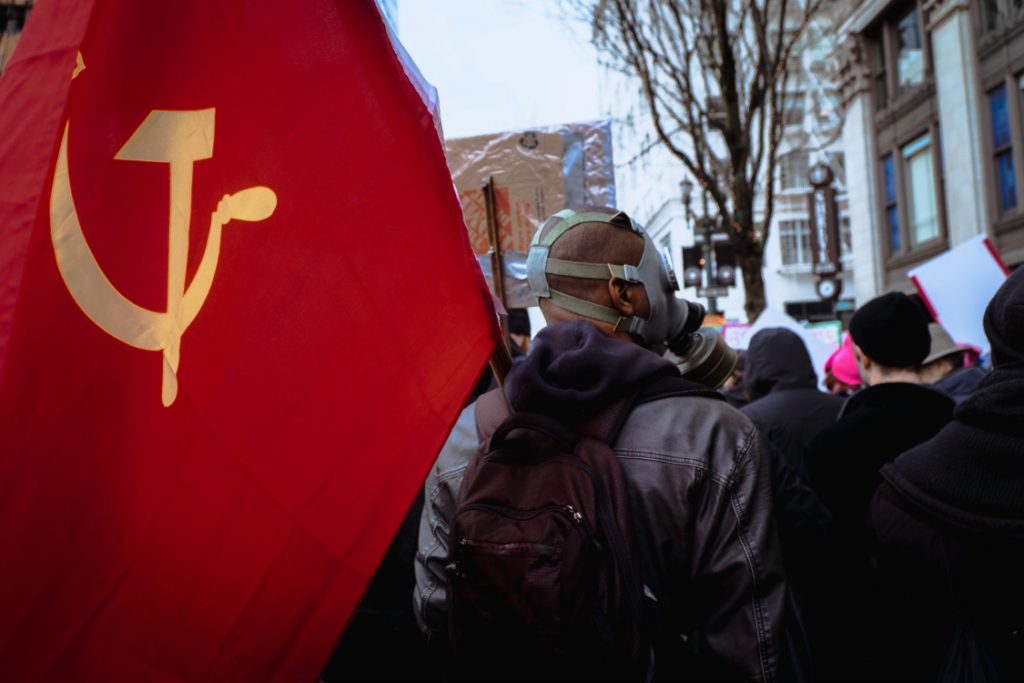
Furthermore, moderates may vote for an extremist who they do not like if they view the alternative as being even more extreme, or extreme in a way that they consider to be more dangerous. There is every reason to believe that this played a role in getting Trump elected in the first place, especially in light of the fact that both candidates faced disapproval from the majority of the American people.28 Similarly, if the Democrats nominate a bona fide regressive leftist in two years, it could potentially increase the risk of a second term of Trump, even if a more moderate Democrat would have been able to defeat him. On the other hand, if such a candidate were to be elected as president, the resulting anger at his or her policies could increase the risk of then electing another Trump-like president or perhaps even someone more extreme. Having a president who behaves as Trump does only increases the temptation to turn to the sort of illiberal measures proposed by the regressive left to curb his excesses.
We should think carefully about the kind of world in which we wish to live. Do we wish to see the right of all to free speech replaced by the right of some to not be offended? Do we wish to live in a world where, as George Orwell brilliantly put it, “All animals are equal, but some animals are more equal than others?”29 Do we wish to turn our backs on the innocent, as due process is abandoned? Do we want to risk sparking a backlash that could land us with four more years of Trump or someone like him—if not in 2020, then in 2024 or 2028? If not, then the time to stand up and speak out is now. We cannot wait until one of the extremes gains enough power to begin tampering with the Constitution, either by appointing a majority of the Supreme Court or by gaining the supermajority necessary to pass constitutional amendments. If we wish to preserve our democratic institutions and pass them on to the generations to come, we must support candidates from either party who recognize the gravity of the threats posed by both extremes. “Anyone but Trump” won’t cut it—and neither will ignoring the danger that is posed by him and those like him.
References:
[1] Pinker, Steven. Enlightenment Now: The Case for Reason, Science, Humanism, and Progress. New York: Viking; 2018. 556 p.
[2] Gibbs, Nancy. Free Speech, Forced Speech, and the Right to Silence [Internet]. New York: Time; 2018 Mar 1 [cited 2018 Mar 18].
[3] Scopes, Gideon. Lawsuit Exposes Internet Giant’s Internal Culture of Intolerance [Internet]. [place unknown]: Quillette; 2018 Feb 1 [cited 2018 Mar 18].
[4] Robertson, Adi. YouTube recruiter sues Google for allegedly refusing to hire white and Asian men [Internet]. New York: The Verge; 2018 Mar 2 [cited 2018 Mar 18].
[5] Park, Madison; Lah, Kyung. Berkeley protests of Yiannopoulos caused $100,000 in damage [Internet]. Atlanta (GA): CNN; 2017 Feb 2 [cited 2018 Mar 18].
[6] Beinart, Peter. A Violent Attack on Free Speech at Middlebury [Internet]. Washington (DC): The Atlantic; 2017 Mar 6 [cited 2018 Mar 18].
[7] Allen, Charlotte. The Appalling Protests at Evergreen State College [Internet]. Washington (DC): The Weekly Standard; 2017 Jun 9 [cited 2018 Mar 21].
[8] Kaczynski, Andrew; Massie, Chris; McDermott, Nathan. 80 times Trump talked about Putin [Internet]. Atlanta (GA): CNN; 2017 Mar [cited 2018 Mar 21].
[9] Liptak, Kevin. Trump on China’s Xi consolidating power: ‘Maybe we’ll give that a shot someday’ [Internet]. Atlanta (GA): CNN; 2018 Mar 3 [cited 2018 Mar 21].
[10] Caldwell, Leigh Ann. GOP Legislative Agenda Stalled Amid Ideological Divides [Internet]. New York: NBC News; 2017 Jul 23 [cited 2018 Mar 21].
[11] Kerr, Orin. Four federal judges issue orders blocking parts of Trump’s executive order on immigration [Internet]. Washington (DC): The Washington Post; 2017 Jan 29 [cited 2018 Mar 21].
[12] Wilkie, Christina. Trump wants to make it easier to sue the media, but that almost definitely won’t happen [Internet]. New York: CNBC; 2018 Jan 11 [cited 2018 Mar 21].
[13] Newport, Frank. Most in U.S. Oppose Colleges Considering Race in Admissions [Internet]. Washington (DC): Gallup; 2016 Jul 8 [cited 2018 Mar 21]. Available from:
[14] Breland, Ali. Online right fumes after YouTube ad crackdown [Internet]. Washington (DC): The Hill; 2017 Sep 30 [cited 2018 Mar 21].
[15] Lieberman, Eric. The Large Majority Of Conservatives Working In Silicon Valley Feel Uncomfortable, Says Survey [Internet]. Washington (DC): The Daily Caller; 2018 Feb 2 [cited 2018 Mar 21].
[16] Hemingway, Mollie Ziegler. The Ten Most Asinine Things About #YesAllWomen [Internet]. Alexandria (VA): The Federalist; 2014 May 28 [cited 2018 Mar 21].
[17] Folkenflik, David; Wertheimer, Linda. Mark Zuckerberg Addresses Fake News On Facebook [Internet]. Washington (DC): NPR; 2016 Nov 19 [cited 2018 Mar 21].
[18] Murphy, Mike. Read Satya Nadella’s letter to Microsoft staff after the events in Charlottesville [Internet]. New York: Quartz; 2017 Aug 15 [cited 2018 Mar 21].
[19] Grossman, Judith E. Judith Grossman: A Mother, a Feminist, Aghast [Internet]. New York: The Wall Street Journal; 2013 Apr 16 [cited 2018 Mar 25].
[20] Gersen, Jeannie Suk. College Students Go to Court Over Sexual Assault [Internet]. New York: The New Yorker; 2016 Aug 5 [cited 2018 Mar 25].
[21] Department of Education Issues New Guidance on Campus Sexual Misconduct [Internet]. Washington (DC): U.S. Department of Education; 2017 Sep 22 [cited 2018 Mar 25].
[22] Von Spakovsky, Hans A. DACA Is Unconstitutional, as Obama Admitted [Internet]. Washington (DC): The Heritage Foundation; 2017 Sep 8 [cited 2018 Mar 25].
[23] Bash, Dana; Sherman, Emily. Sotomayor’s ‘wise Latina’ comment a staple of her speeches [Internet]. Atlanta (GA): CNN; 2009 Jun 8 [cited 2018 Mar 25].
[24] Prestigiacomo, Amanda. ORWELLIAN: Canadians Can Now Be Fined Or JAILED For Using Wrong Gender Pronouns [Internet]. Sherman Oaks (CA): The Daily Wire; 2017 Jun 21 [cited 2018 Mar 25].
[25][25] Peterson, Jordan B. Canadian gender-neutral pronoun bill is a warning for Americans [Internet]. Washington (DC): The Hill; 2016 Oct 18 [cited 2018 Mar 25].
[26] Roelf, Wendell. Vote in South Africa’s parliament moves land reform closer [Internet]. London: Reuters; 2018 Feb 27 [cited 2018 Mar 25].
[27] Leak, Bill. Bill Leak’s full submission to 18C parliamentary inquiry, [Internet]. Sydney: The Australian; 2017 March 13 [cited 2018 Mar 25].
[28] England, Charlotte. Record number of people disapprove of Hillary Clinton and Donald Trump, new poll shows [Internet]. London: The Independent; 2016 Nov 1 [cited 2018 Mar 25].
[29] Orwell, George. Animal Farm. New York: Signet; 2004. 140 p.



